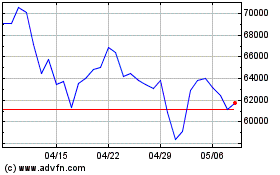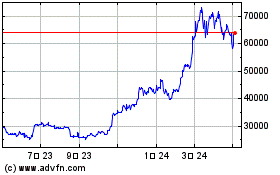Experts Discuss What Made Solana Memecoins The Cycle’s Top Narrative
2024年10月8日 - 8:00PM
NEWSBTC
During this cycle, Memecoins, especially Solana-based ones, became
the leading narrative of the crypto market. These tokens have
eclipsed investors’ attention and overshadowed the performance of
many large-cap altcoins. Some experts weighed in on the market’s
performance over the last year, discussing what made meme-based
tokens the cycle’s top-leading narrative, and what could be next
for the industry. Related Reading: FET Gears Up for Gains: Bullish
Momentum Eyes $1.8 Breakout The Value Of Solana ‘Interjective
Culture Coins’ Qiao Wang, co-founder of Alliance DAO, shared his
thoughts on the market dynamics that led to each cycle’s top
narrative. In the X post, he noted how there’s “an opportunity for
retail to outperform professionals” every cycle. The alpha is for
retail to get involved at a time when there’s too much career risk
for professionals to get involved. Retail investors outperformed
professionals during the first cycle with “simply” Bitcoin, Wang
explained. In the second cycle, investors took advantage of
Ethereum’s narrative, while Decentralized Finance (DeFi) and
Non-Fungible Tokens (NFTs) became the leading retail opportunities
during the third one. Solana and the “intersubjective culture
coins,” as Wang called memecoins, have dominated the ongoing cycle.
The meme-based tokens’ popularity has often been criticized for a
lack of utility and “substance,” frequently resulting in a “quick
buck” for their creators and a few early buyers. Nonetheless, Wang
seemingly suggests that these tokens’ value relies on the shared
culture behind them, an argument that experts and industry figures
have discussed before. As reported by NewsBTC, crypto traders Ansem
and Kel debated the value of memecoins in the Unchained podcast. In
the interview, the traders explained there’s value in memes and
culture on the internet, which makes a comparison with other
altcoins “pointless.” They added that the crypto community is “very
internet-centered” as its members understand the financial aspect
and are very knowledgeable about online culture. As such, crypto
investors realized there’s an opportunity to “financialize” meme
virality in the industry. Additionally, they pointed out that the
“shared experience of relating” is another crucial factor driving
the craze of meme-based tokens, as seen with the communities of
Solana-based memecoins like dogwifhat (WIF) and Popcat (POPCAT).
Memecoins ‘Absorbed’ The Market’s Energy On Sunday, Chris Burniske,
the co-founder of Placeholder, also took X to weigh in on the
memecoins frenzy. To him, “Memecoins’ tendency to trigger is all
you need to observe to know they’ll be bigger than we expect in the
expansion ahead.” In the post, Burniske revealed that he considers
the “trend is clear” as the cultural relevance NFT collections had
in 2021 will be surpassed by some of the memecoin sensations of
this cycle. It is worth noting that, on October 7, the total market
capitalization of Solana memecoins surpassed $10 billion, as
SolanaFloor reported. Solana co-founder Anatoly Yakovenko replied
to Burniske, sharing his theory for why memecoins became the
leading narrative. Yakovenko considers that the previous cycles
“were also 90% memes and 10% products.” Related Reading: XRP Takes
A 16% Hit In SEC Lawsuit Drama, But Analysts See Hope However, he
suggests that today, the sector has monopolized the energy that
propelled different narratives during other cycles: “My theory is
that memecoins today have completely absorbed the meme energy that
drove other cycles, like DeFi summer,” Solana’s co-founder noted.
Based on it, Yakovenko believes that products must “make it purely
on value” now, which could be a positive thing for the broader
industry. As of this writing, Solana (SOL) is trading at $151, a 4%
surge in the last 24 hours. Featured Image from Unsplash.com, Chart
from TradingView.com
Bitcoin (COIN:BTCUSD)
過去 株価チャート
から 12 2024 まで 1 2025

Bitcoin (COIN:BTCUSD)
過去 株価チャート
から 1 2024 まで 1 2025
